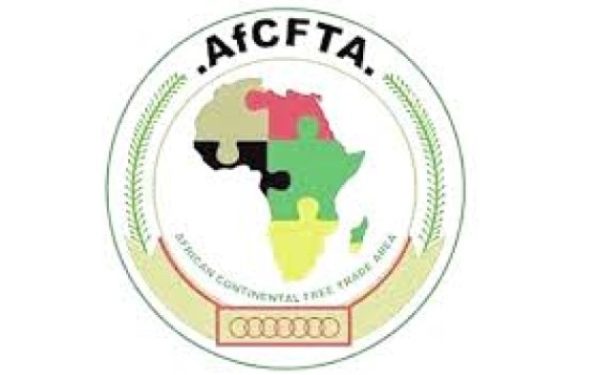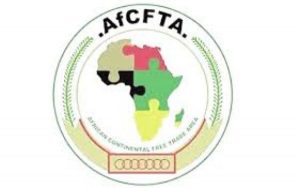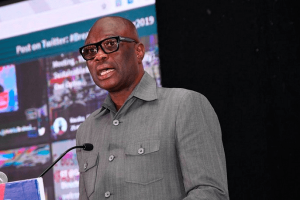The Ministry of Trade and Industry is urging member states of the African Continental Free Trade Area Agreement (AfCFTA) to develop the right policy frameworks to promote the development of both Special Economic Zones and the operationalization of AfCFTA.
According to the Ministry of Trade, this will also enable private sector operators to harness the benefits and facilitate intra-Africa trade.
Addressing delegates on behalf of the Minister of Trade, Alan Kyerematen at the 6th Africa Economic Zones Organization (AEZO) Annual Meeting, Information Minister, Kojo Oppong Nkrumah, noted that accessing trade information and ensuring smooth operations at the ports are part of the many policies Ghana has instituted to address the challenges of the private sector.
“The private sector operators cannot harness the benefits of both SEZs and the operationalization of AfCFTA if we do not develop programmes and projects to deal with the high cost of trading across our borders, weak trade infrastructure, inefficient customs clearance, and unnecessary bureaucracy and red tape which tend to impede smooth regional trade. It is in the light of these challenges that Member States of AfCFTA need to pay dedicated attention to the various elements being promoted under the African Union’s Programme of Action for Boosting Intra Africa Trade (BIAT).”
“Ghana has already started implementing a Comprehensive Agenda for Industrial Transformation which is in line with the BIAT Programme of Action, in readiness to take advantage of the AfCFTA. Some of the interventions currently being pursued by the Government under the BIAT priority clusters are the ‘One Region One Park’ initiative, which aimed at developing at least one Industrial Park or Special Economic Zone in each of the 16 administrative regions in Ghana to provide easy access to dedicated commercial land spaces for enterprise development.”
“In addition, we believe that trade facilitation plays a critical role in market integration and taking advantage of SEZs and the operationalization of AfCFTA requires a strong and robust trade facilitation system, particularly at our Ports of entry. In this regard, the Government of Ghana has introduced a number of trade facilitation measures to simplify the trading regimes. The reduction in the number of inspection bodies at our Ports and Border Posts, the harmonization and simplification of Customs procedures and documentation have been established to ensure that businesses operating within SEZs can trade smoothly and be active players in the global value chains,” he said.
Chief Executive of the Ghana Free Zones Authority, Mike Ocquaye Junior, expressed his outfit’s commitment to provide a conducive environment to attract foreign direct investments.
“If we are united, we are stronger, so if we are able to put our inter-trade together we can achieve more in Africa. We are looking at the various agencies under the ministry of trade and coming together to be able to take advantage of a more connected Africa. Because we need to rely on ourselves more to help with the supply chain especially in the COVID-19 era and that is the more reason why we are having this conference.
“We are here to talk about how we will get the lands ready, anybody who wants to produce need lands, raw materials, our challenge is how to get industrial lands in an economic zone, demarcation, roads, electricity, water, and how to make the place business-friendly and ready in a competitive manner to be able to work under Africa Continental Free Trade Area and to also learn from each other in terms of best practice and to compare this new trade dimension in a competitive business era,” he said.
Secretary General of The Africa Economic Zones Organization, Ahmed BENNIS, highlighted the need for African SEZs to not just attract investors or joining value chains, but rather increase the share of value added created locally.
The 6th edition of the annual meeting of the Africa Economic Zones Organization (AEZO) was held in partnership with Ghana Free Zones Authority (GFZA) and the African Continental Free Trade Area Secretariat (AfCFTA).
It was under the theme: “Connecting African special economic zones to global value chains at the era of the African free trade area (AfCFTA).”
Special economic zones (SEZs) have been gradually gaining traction in the developing world over the last two decades. While modern SEZ development started decades ago in Europe and Asia, an increasing number of African countries have been developing SEZ policies and building SEZs in collaboration with internal and external players.
According to [UNCTAD], currently, there are over 230 SEZs in Africa and 200 single-enterprise zones. SEZs are present in 38 of the 54 countries in Africa with Kenya having the highest number at 61. Other notable countries are Nigeria, with 38 SEZs, and Ethiopia, with 18 zones.







